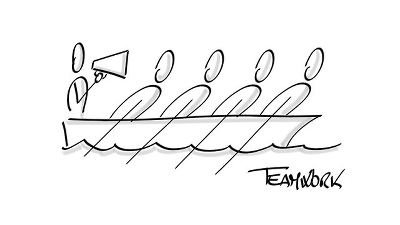'Cultural intelligence' is required to succeed in working with people from different cultures

With the development of telecommunications networks and transportation, there has been an increasing number of opportunities to interact with people from different cultures at work in recent years. Different cultures can easily lead to misunderstandings and misunderstandings, but he is a senior lecturer at
Cultural Intelligence and Institutional Success: The Mediating Role of Relationship Quality-ScienceDirect
https://www.sciencedirect.com/science/article/abs/pii/S1075425317304428
What it takes to navigate cultural differences in a global business world
https://theconversation.com/what-it-takes-to-navigate-cultural-differences-in-a-global-business-world-119975

Sharma points out that cultural intelligence is a concept defined as 'the ability to properly grasp things, develop logical reasoning, and act effectively in culturally diverse situations.' thing.
Sharma explains that a person of cultural intelligence can jump over the narrow cultural boundaries in which he was born and grew up and decipher the complex interactions in a cross-cultural encounter. Business partners from different cultures may have problems communicating and agreeing on how to work. Cultural intelligence seems to be useful in situations where anxiety and uncertainty need to be managed in an unfamiliar environment.
Sharma points out that managers with a high degree of cultural intelligence are curious, open-minded and open-minded, rather than unilaterally deciding anything. He said that the perspective of how their culture is perceived by other cultures is also important in building trust with people who are culturally different.
A 2011

Sharma conducted further research on cultural intelligence with 186 Indian managers doing business with New Zealand customers. In this study, we investigated the interaction among four items of cognitive, meta-cognitive, motivation, and behavior in cultural intelligence, the quality of human relationships, and how successful our organization was. did. The items of 'cognition', 'meta-cognition', 'motivation' and 'behavior' are items based on the theory established by Sharma's research team, and it is thought that these interactions form cultural intelligence. You.
Those who excel in terms of 'cognition' in cultural intelligence have extensive knowledge of foreign politics, culture, and economic systems. On the other hand, because they have a lot of knowledge, they may perform 'sophisticated stereotyping based on extensive knowledge' and bring people who belong to a particular culture together. And that.
Sharma points out that 'meta-cognition' in cultural intelligence weakens the negative effects of this 'cognition'. People with meta-cognitive skills can actively review their stereotypes and avoid using arbitrary contexts as criteria in cross-cultural exchanges. He seems to be able to fine-tune his thoughts by questioning cultural assumptions by taking a meta perspective and consciously trying to understand the cultural preferences of others.
'Motivation' is an item that indicates the desire to perform well in a culturally diverse environment. 'Action' is a judgment item about the willingness to take appropriate action for people with a different culture. Sharma's research team looked at how each subject excelled at these four items, and analyzed which items were important in a global environment, in light of the quality of relationships and organizational success. .

Research has shown that cognition is most relevant to managerial success, and that combining this with meta-cognition also improves the quality of relationships. Also, `` motivation '' seems to have had a large positive effect on the quality of relationship and the success of the organization, but if the item of `` action '' is high, there was a large negative effect on the success of the organization . Sharma points out that 'action' has a negative impact on organizational success, and further research is needed.
'This study shows that 'cognition' and 'meta-cognition' can interact to ensure a high quality relationship with business partners and to better manage cultural differences. Given the positive effects of cultural intelligence in a global environment and the findings of this study, managers need to strengthen cultural intelligence through training and practice. ' Argued that there was a need to improve empathy, emotional stability and flexibility through other cultural experiences.

Related Posts:
in Note, Posted by log1h_ik







